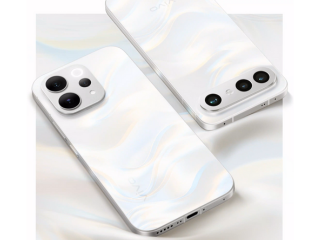- Home
- Laptops
- Laptops News
- Intel, finding a chip flaw, expects to lose $1 billion
Intel, finding a chip flaw, expects to lose $1 billion
By Verne G. Kopytoff, The New York Times | Updated: 5 June 2012 02:20 IST
Click Here to Add Gadgets360 As A Trusted Source

Advertisement
Intel said on Monday it had stopped shipping a new chipset after discovering a design flaw that might cause 5 percent of the chips to fail over the next three to five years.
The loss in revenue and the fixing of the nearly half a million laptop and desktop computers that contain the chipset are expected to cost Intel $1 billion.
Intel said that the Series 6, or Cougar Point, chipset, which controls the movement of data to hard drives, DVD drives and monitors, has a failure rate of 5 percent over the typical three- to five-year lifespan of a computer. Over time, some of the connection ports on the chipset can degrade, potentially blocking consumers from reaching their stored data. However, Intel said that the problem did not delete the data and that consumers would still be able to get to it by moving a hard drive to another computer.
Computers with the flawed chip, which is for use with second-generation I5 and I7 quad core processors, started shipping on Jan. 9. By the time Intel identified the flaw and stopped production, it had already shipped eight million chipsets, not all of which had been placed in new computers.
A modified version of the chipset will start shipping late this month, Intel said. Full production is expected in April.
Intel, the largest maker of chips, had hoped that its new chips would help widen its lead over its nearest competitor, Advanced Micro Devices. Although analysts described the halt in production as an embarrassment, they said it was unlikely to have a long-term impact.
"I think Intel is being safe rather than sorry," said Craig Berger, an analyst with Friedman, Billings, Ramsey & Company. "They're doing the right thing, rather than have customer problems down the road."
Intel said that tests of the chipset before its public release uncovered no issues. Only after computer makers returned a few problem chips, after their tests, did Intel discover the flaw, said Stephen L. Smith, vice president for Intel's personal computer client operations.
"Intel believes that consumers can continue to use their systems with confidence while working with computer manufacturers for a solution," he said on a conference call on Monday.
Consumers who believe they may have bought a computer with one of the Intel's flawed chipsets are advised to contact the support desk of the computer manufacturer or that of Intel.
The interruption in production is expected to reduce Intel's first-quarter revenue by $300 million, Intel said. And $700 million more is expected to be spent on fixing the chipsets and replacing those already built into computers. Because of the chipset design flaw, Intel said it will take a charge that will reduce its fourth quarter 2010 gross profit margins by around 4 percentage points from the 67.5 percent it previously reported.
Separately, Intel tempered the bad news with an updated first-quarter forecast. It expects to gain from the acquisitions of Infineon Technologies' wireless unit and McAfee, the computer security company, which should offset the loss from the chip flaw. The McAfee deal should close by the end of March, Intel said.
First-quarter revenue is expected to be $11.3 billion to $12.1 billion, up from an earlier forecast of $11.1 billion to $11.9 billion. Gross margins should be around 61 percent, compared with the previous forecast of about 64 percent, Intel said.
For the full year, Intel said it expected the percentage growth in revenue would be in the mid- to high teens, versus about 10 percent growth, which it had previously predicted.
Intel's shares were unchanged on Monday at $21.46. Shares of Advanced Micro Devices were up nearly 5 percent, to $7.83.
The loss in revenue and the fixing of the nearly half a million laptop and desktop computers that contain the chipset are expected to cost Intel $1 billion.
Intel said that the Series 6, or Cougar Point, chipset, which controls the movement of data to hard drives, DVD drives and monitors, has a failure rate of 5 percent over the typical three- to five-year lifespan of a computer. Over time, some of the connection ports on the chipset can degrade, potentially blocking consumers from reaching their stored data. However, Intel said that the problem did not delete the data and that consumers would still be able to get to it by moving a hard drive to another computer.
Computers with the flawed chip, which is for use with second-generation I5 and I7 quad core processors, started shipping on Jan. 9. By the time Intel identified the flaw and stopped production, it had already shipped eight million chipsets, not all of which had been placed in new computers.
A modified version of the chipset will start shipping late this month, Intel said. Full production is expected in April.
Intel, the largest maker of chips, had hoped that its new chips would help widen its lead over its nearest competitor, Advanced Micro Devices. Although analysts described the halt in production as an embarrassment, they said it was unlikely to have a long-term impact.
"I think Intel is being safe rather than sorry," said Craig Berger, an analyst with Friedman, Billings, Ramsey & Company. "They're doing the right thing, rather than have customer problems down the road."
Intel said that tests of the chipset before its public release uncovered no issues. Only after computer makers returned a few problem chips, after their tests, did Intel discover the flaw, said Stephen L. Smith, vice president for Intel's personal computer client operations.
"Intel believes that consumers can continue to use their systems with confidence while working with computer manufacturers for a solution," he said on a conference call on Monday.
Consumers who believe they may have bought a computer with one of the Intel's flawed chipsets are advised to contact the support desk of the computer manufacturer or that of Intel.
The interruption in production is expected to reduce Intel's first-quarter revenue by $300 million, Intel said. And $700 million more is expected to be spent on fixing the chipsets and replacing those already built into computers. Because of the chipset design flaw, Intel said it will take a charge that will reduce its fourth quarter 2010 gross profit margins by around 4 percentage points from the 67.5 percent it previously reported.
Separately, Intel tempered the bad news with an updated first-quarter forecast. It expects to gain from the acquisitions of Infineon Technologies' wireless unit and McAfee, the computer security company, which should offset the loss from the chip flaw. The McAfee deal should close by the end of March, Intel said.
First-quarter revenue is expected to be $11.3 billion to $12.1 billion, up from an earlier forecast of $11.1 billion to $11.9 billion. Gross margins should be around 61 percent, compared with the previous forecast of about 64 percent, Intel said.
For the full year, Intel said it expected the percentage growth in revenue would be in the mid- to high teens, versus about 10 percent growth, which it had previously predicted.
Intel's shares were unchanged on Monday at $21.46. Shares of Advanced Micro Devices were up nearly 5 percent, to $7.83.
Comments
Get your daily dose of tech news, reviews, and insights, in under 80 characters on Gadgets 360 Turbo. Connect with fellow tech lovers on our Forum. Follow us on X, Facebook, WhatsApp, Threads and Google News for instant updates. Catch all the action on our YouTube channel.
Further reading:
Cougar Point, Intel Series 6, chipset, intel, intel chip flaw, intel manufacturing defect
Popular on Gadgets
- Samsung Galaxy Unpacked 2026
- iPhone 17 Pro Max
- ChatGPT
- iOS 26
- Laptop Under 50000
- Smartwatch Under 10000
- Apple Vision Pro
- Oneplus 12
- OnePlus Nord CE 3 Lite 5G
- iPhone 13
- Xiaomi 14 Pro
- Oppo Find N3
- Tecno Spark Go (2023)
- Realme V30
- Best Phones Under 25000
- Samsung Galaxy S24 Series
- Cryptocurrency
- iQoo 12
- Samsung Galaxy S24 Ultra
- Giottus
- Samsung Galaxy Z Flip 5
- Apple 'Scary Fast'
- Housefull 5
- GoPro Hero 12 Black Review
- Invincible Season 2
- JioGlass
- HD Ready TV
- Latest Mobile Phones
- Compare Phones
Latest Gadgets
- Tecno Pova Curve 2 5G
- Lava Yuva Star 3
- Honor X6d
- OPPO K14x 5G
- Samsung Galaxy F70e 5G
- iQOO 15 Ultra
- OPPO A6v 5G
- OPPO A6i+ 5G
- Asus Vivobook 16 (M1605NAQ)
- Asus Vivobook 15 (2026)
- Brave Ark 2-in-1
- Black Shark Gaming Tablet
- boAt Chrome Iris
- HMD Watch P1
- Haier H5E Series
- Acerpure Nitro Z Series 100-inch QLED TV
- Asus ROG Ally
- Nintendo Switch Lite
- Haier 1.6 Ton 5 Star Inverter Split AC (HSU19G-MZAID5BN-INV)
- Haier 1.6 Ton 5 Star Inverter Split AC (HSU19G-MZAIM5BN-INV)
© Copyright Red Pixels Ventures Limited 2026. All rights reserved.


![[Partner Content] OPPO Reno15 Series: AI Portrait Camera, Popout and First Compact Reno](https://www.gadgets360.com/static/mobile/images/spacer.png)









